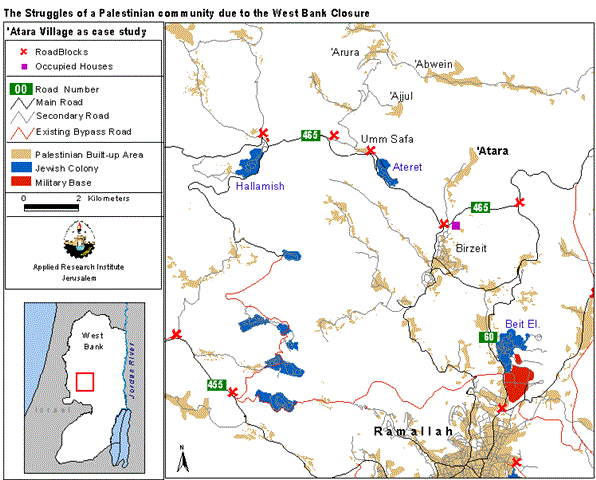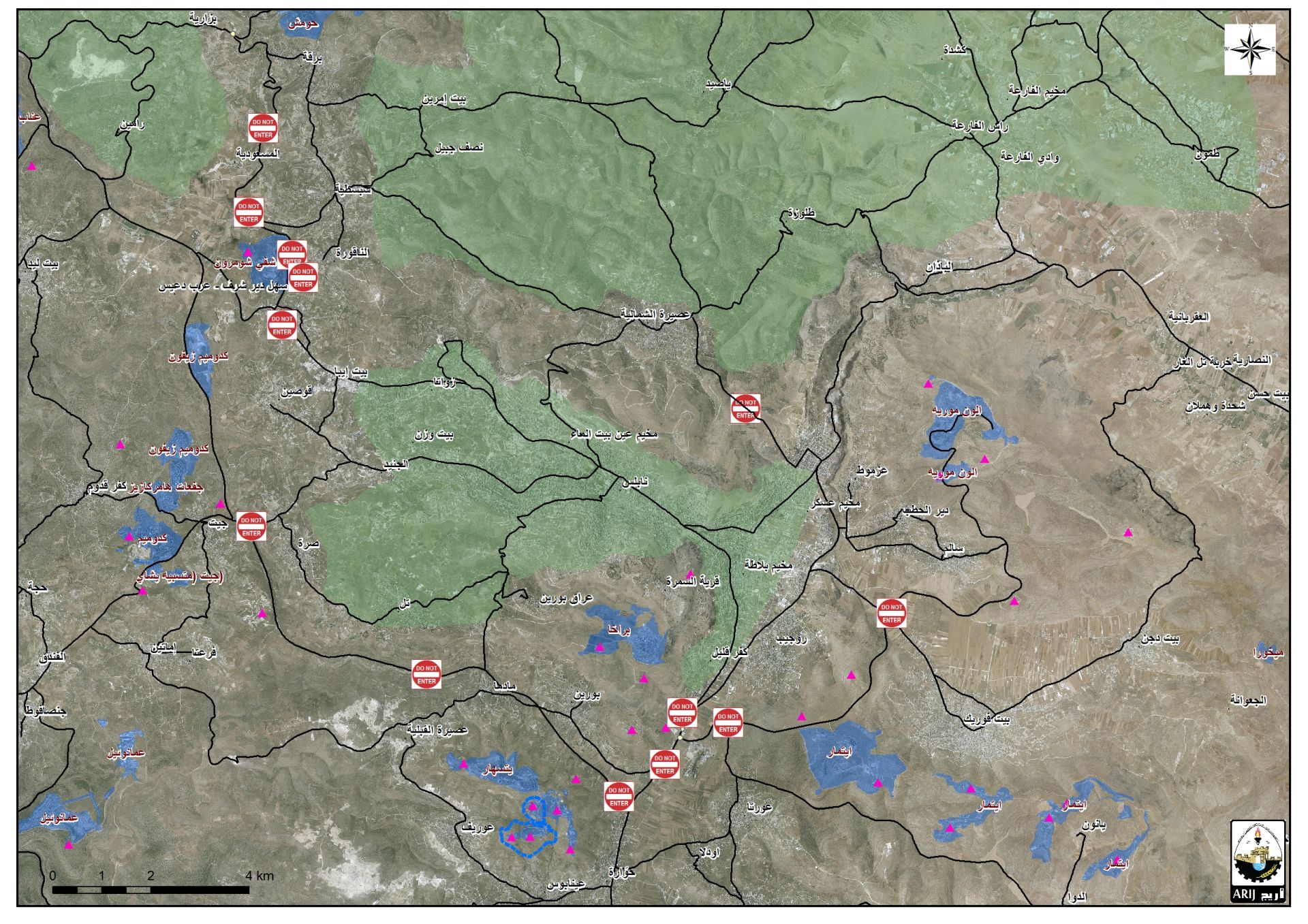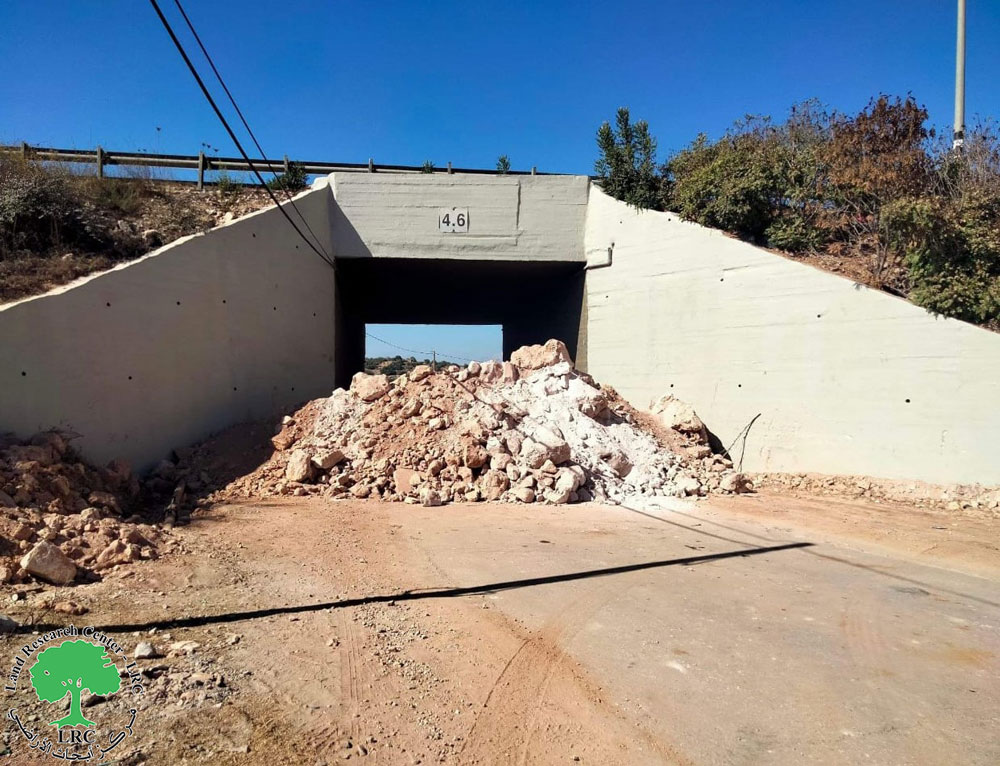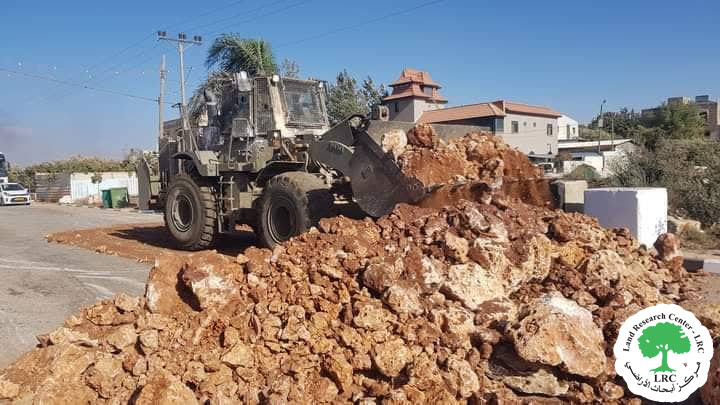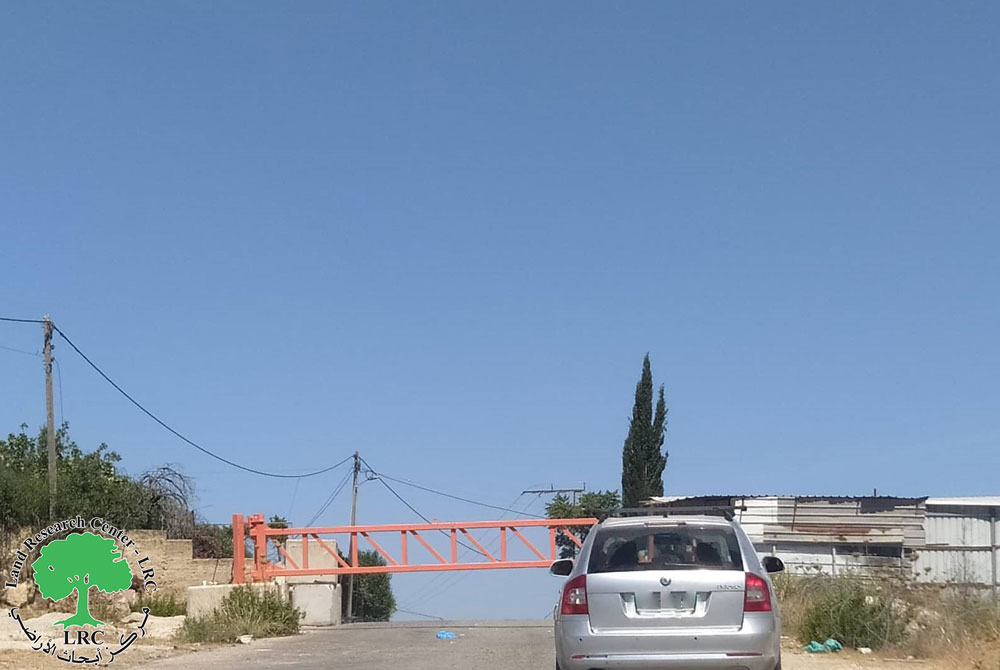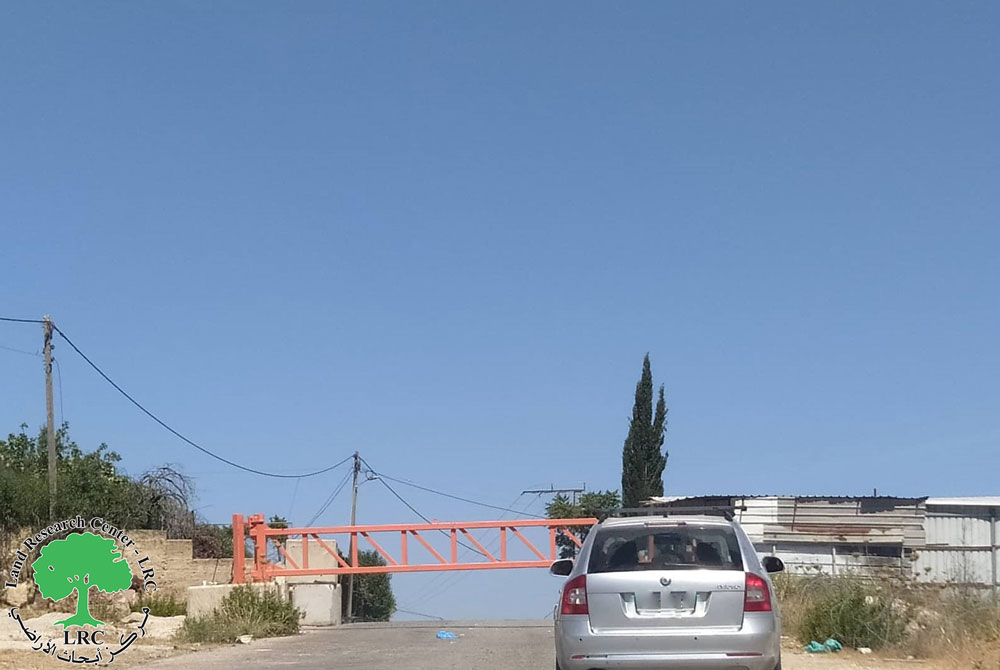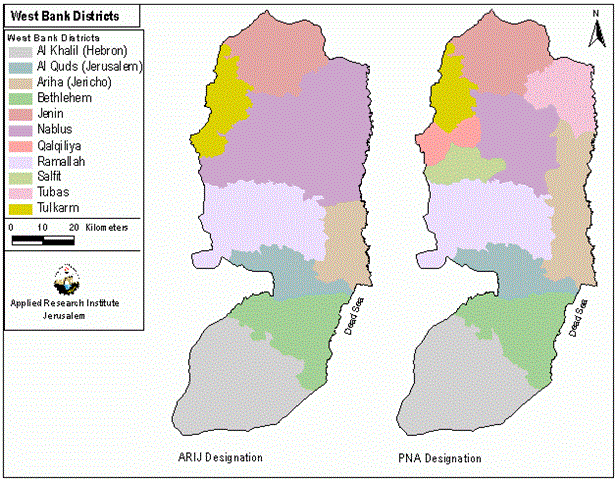'Atara is a Palestinian village in Ramallah District located only three kilometers south of Birzeit which is north of Ramallah; see map. The village stands on the second highest hilltop in the West Bank at 810m. In the 1997 Census 1,662 Palestinian villagers were recorded as living in 'Atara. It is believed that there are now around 2,000 villagers. Before 1948, the Palestinian villagers of 'Atara were dependent on agriculture for their income. Between 1952 and 1955 there was a surge in the rate of emigration from the village to the Gulf states because of the economic situation in the West Bank. Others began to look for work in Ramallah and Jerusalem. After 1967, numbers of villagers found work in Israel. As a result, the agricultural production has reduced and a substantial part of the village economy became dependent on those who travel outside of 'Atara.. The village stands on the second highest hilltop in the West Bank at 810m. In the 1997 Census 1,662 Palestinian villagers were recorded as living in 'Atara. It is believed that there are now around 2,000 villagers. Before 1948, the Palestinian villagers of 'Atara were dependent on agriculture for their income. Between 1952 and 1955 there was a surge in the rate of emigration from the village to the Gulf states because of the economic situation in the West Bank. Others began to look for work in Ramallah and Jerusalem. After 1967, numbers of villagers found work in Israel. As a result, the agricultural production has reduced and a substantial part of the village economy became dependent on those who travel outside of 'Atara.
Table 1: 'Atara villagers working in the West Bank outside of 'Atara village
|
Number |
|
|
Workers in Ramallah District |
42 |
|
Workers in Jerusalem District |
14 |
|
Workers in other places |
35 |
The position of 'Atara village high on a hill makes it particularly difficult to access. The village can only be reached by one road, that coming from the south (i.e. from Birzeit town). This road bridges the by-pass road that links the settlements of Hallamish and Ateret with Beit El; see photo. To leave the village by any other route involves crossing deep valleys. After the first Intifada, the Israeli army installed themselves in a small house near this bridge, in order to be able to monitor the movements of the Palestinian villagers; see photo and map . At the start of the current Al Aqsa Intifada, an Israeli patrol was positioned on the road itself, enabling the Israeli army to block off the village at will. The complete closure of the village started on 9th November 2000; this has in effect frozen the movements of villagers.. To leave the village by any other route involves crossing deep valleys. After the first Intifada, the Israeli army installed themselves in a small house near this bridge, in order to be able to monitor the movements of the Palestinian villagers; and . At the start of the current Al Aqsa Intifada, an Israeli patrol was positioned on the road itself, enabling the Israeli army to block off the village at will. The complete closure of the village started on 9th November 2000; this has in effect frozen the movements of villagers.
The agriculture of 'Atara village has been significantly affected by the blockade. The eggs from the village's 11 poultry farms must be delivered outside of the village for marketing. When the soldiers block the road, there is no alternative route by which this delicate produce can be taken out of the village. During the blockade, the eggs have been wasted. After the olive harvest season, farmers must transport olives to the pressing factory in 'Arura village (around 6km to the northwest) to produce olive oil. Under the blockade, the farmers had to take much more difficult routes in order to deliver their olives to be pressed. Some farmers carried their olives down dirt tracks in vehicles in the middle of the night without using headlights. Along the way one of the cars carrying goods slipped. Other farmers chose an even slower route by taking the olives on animal's backs along tracks to Birzeit. As a result of the continuing blockade, many of the cars delivering the olives, and some of the oil, were unable to return to 'Atara village and remained stuck in the nearby villages of 'Ajjul, 'Abwein and Birzeit. Some of the oil also had to be transported back to 'Atara village on animal's backs at night.
'Ataras agriculture has not only suffered from the actions of the Israeli soldiers but also from the Jewish settlers of Ateret, a settlement built on 'Atara's land. The settlers have prevented the Palestinian villagers from reaching their olive groves during the harvest season in November. For example, farmers Rabah Mohamed Fehmi and Hashem Ibrahim Elhaj were forced by the settlers to leave their land and were prevented from tending it. The villagers have lost much of their crop as a result of the closure as well as the intimidation by settlers.
Villagers trying to leave the village have to pass the army checkpoint where they are asked about their ID and inspected, often in a degrading manner. Students were prevented from reaching their schools and universities. The studies of 140 students were affected by the closure; see table below.
Table 2:The 'Atara villagers students study outside 'Atara village
|
|
Number of Students |
|
Al-Umah college |
2 |
|
Ramallah high schools |
83 |
|
Birzeit University |
28 |
|
Al-Quds University |
8 |
|
Al-Quds Open University |
19 |
|
Total |
140 |
Both workers and students, who were caught trying to take alternative routes out of the village, were prevented from continuing on their journey by the Israeli soldiers. On one particular occasion, on 15th November 2000, a group of students tried to leave the village across the fields to reach their colleges. They were caught by the Israeli patrol and taken to the army checkpoint by the bridge. Here they were forced to stand and wait under the guard of the soldiers for the whole day.
Even patients have suffered from the closure. Umm Nizar, who was suffering from high blood pressure and was bleeding from her nose, was trying to reach the hospital in Ramallah with her husband Mr Abass Al-Mughrabi. The soldiers prevented them from passing through the checkpoint. Finally after a long argument, they were granted permission to pass though only for one hour.
The systematic intimidation and harassment of Palestinian villagers is a policy not only enforced by settlers but also by soldiers. The villagers of 'Atara like many other Palestinians have suffered a lot from both Israeli soldiers and the settlers. The ongoing closure of 'Atara village is a totally unacceptable form of collective punishment, that seems to be directed at demoralizing the community and thus making it easier to expel people from their land. Such actions are a flagrant violation of the Fourth Geneva Convention and the signed agreements.
Prepared by:
The Applied Research Institute – Jerusalem


